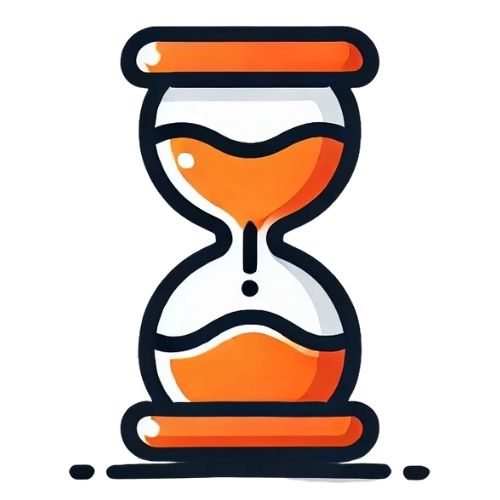
Buying a home is one of the biggest financial steps you’ll ever take, and it often involves getting a home loan, also known as a mortgage. One key part of this process that many South Africans overlook is the mortgage term, which is the length of time you agree to take to repay the loan. This single factor affects your monthly payments, the total interest you’ll pay, and how long you’ll stay in debt. Whether you’re buying your first home or looking to refinance, understanding how mortgage terms work helps you plan your budget better and avoid future surprises.
Key Takeaways
- Definition of a Mortgage Term: The mortgage term refers to the agreed period to repay your home loan, typically 20 to 30 years in South Africa, which influences both monthly instalments and total interest paid.
- Choosing Based on Personal Circumstances: Factors such as your age, income level, and job stability should guide your decision, with longer terms offering lower repayments and shorter terms reducing overall loan costs.
- Role of Advisors and Originators: Bond originators and mortgage advisors help compare loan options and terms, offering tailored guidance based on your financial goals and affordability.
About Arcadia Finance
Getting a loan has never been easier with Arcadia Finance. No application fees, no stress, and access to 19 reputable, NCR-registered lenders who put your needs first. Let us help you find the right financial solution, quickly and securely.
What Is a Mortgage?
A mortgage, also referred to as a bond or home loan, is a legal agreement made between a person or a business and a financial institution, usually a bank. Under this arrangement, the bank lends you money to purchase a property. In return, the lender gains the legal right to claim ownership of that property if you do not repay the full loan amount, including the interest charges, within the agreed period.
For many South Africans, a home loan is the only realistic way to become a property owner. However, taking on this type of loan comes with long-term financial responsibility. A mortgage is still a form of debt, and failing to follow the repayment terms set by the lender can result in serious financial consequences, including the possible loss of your home. Understanding the terms of your loan and your repayment obligations is essential before signing any agreement.
Process Of Obtaining A Mortgage
- Loan Application and Approval: Homebuyers begin by submitting a mortgage application to a bank or registered lender. The lender will check details such as your credit record, current employment, monthly earnings, and general financial standing to decide if you qualify for the loan.
- Property Valuation: Before granting the loan, the bank will arrange for a professional valuation of the property. This is done to confirm that the home’s market value matches the loan amount being requested.
- Signing the Mortgage Contract: If the application is successful, both the lender and borrower sign a formal loan agreement. This contract outlines the repayment terms, interest rate, and other legal obligations, making it legally enforceable.
- Registration at the Deeds Office: The mortgage is then registered through the Deeds Office. The loan details are attached to the property’s title deed, showing the lender’s interest in the property until the loan is repaid in full.
If you’re exploring how long your home loan should run, it’s equally important to understand how your interest rate structure can affect your monthly payments. Check out this comparison between Fixed vs. Variable Interest Rate for Your Home Loan to see how rate type plays a role over different term lengths.

Pros and Cons of Mortgages
Pros
- Some banks may give you access to lower interest rates, which can make a mortgage a more affordable way to borrow money than other types of loans.
- You can choose how long you want to take to repay the loan, such as a 20-year or 30-year term, depending on what suits your budget.
- You are allowed to pay more than the required amount, which can help reduce the total loan term and interest paid.
- Extra funds paid into your mortgage can usually be accessed again, without needing approval from the bank, though doing so may increase the total cost of the loan.
- Instead of paying monthly rent to a landlord, your repayments go toward owning a home of your own.
- Owning property is seen as a form of investment, as the value of your home may increase over time. However, the mortgage itself is not considered an investment.
- Your financial position improves as you pay off more of the bond, increasing your ownership share in the property.
- There may be tax relief or homeowner benefits, depending on how the property is used and current government regulations.
- Having a mortgage can boost your credit profile, as it shows lenders you can manage long-term financial commitments.
- Some banks include building insurance with your home loan, which may cost less than getting it from a separate provider.
- You can apply to refinance the home loan or adjust the repayment period, provided you meet the lender’s conditions.
Cons
- You commit to a long-term repayment agreement, which involves paying back both the loan amount and the added interest over many years.
- You will end up paying more for the property overall, compared to someone who buys a home outright without borrowing.
- If you are unable to keep up with repayments, the bank can repossess and sell the home to recover the money owed, and you could lose the property.
When choosing a mortgage, the term you select directly impacts the total cost over time. But how does it stack up against other credit options? Learn more about the pros and cons of short vs long-term loans to make smarter comparisons when evaluating mortgage durations.
What Is a Mortgage Term?
A mortgage term refers to the length of time that your home loan agreement remains valid under specific conditions, such as a set interest rate and agreed repayment schedule.
This period can vary, but in South Africa, mortgage terms typically range from 20 to 30 years. Once the agreed term ends, you’ll need to renew the mortgage for a new term unless the loan has been fully repaid.
Each time the term comes to an end, it gives you the opportunity to:
- Settle the outstanding balance in full (if finances allow)
- Review and make changes
- Negotiate a new interest rate
- Adjust the loan conditions
Comparison of 30-Year vs 20-Year Mortgage Terms
When choosing a home loan, the length of your mortgage term can significantly impact your monthly payments, total interest paid, and how quickly you build equity. The table below compares the key features, benefits, and trade-offs of 30-year and 20-year mortgage terms to help you make an informed decision based on your financial goals and lifestyle.
| Feature | 30-Year Mortgage Term | 20-Year Mortgage Term |
|---|---|---|
| Repayment Duration | 30 years (longer term) | 20 years (shorter term) |
| Monthly Instalments | Lower monthly repayments | Higher monthly repayments |
| Affordability | – Larger or more expensive homes may become more affordable – Monthly costs remain within reach | – Requires stricter budgeting due to higher instalments |
| Budget Flexibility | More room for daily expenses (groceries, school fees, medical bills) | Reduced disposable income |
| Utility & Maintenance Costs | Easier to manage with lower repayments | May strain budget depending on overall financial situation |
| Interest Paid Over Time | More total interest paid due to longer repayment period | Less total interest paid due to faster repayment |
| Long-Term Cost | Higher overall expense than a 20-year loan | Lower overall expense |
| Retirement Impact | If started at 35, the loan ends at 65, leaving less time to build retirement savings. | Loan clears earlier, allowing more time to focus on saving for retirement |
| Debt Clearance | Slower | Faster |
| Equity Build-Up | Slower accumulation of home equity | Faster build-up of home equity |
| Home Equity Benefits | – Equity still builds over time as you repay – Increases with property appreciation – Can be borrowed against (with risk) – Just slower to accumulate | – Grows as you repay – Increases with property value – Considered a financial asset – Can be borrowed against (with risk) |
The Home Loan and Mortgage Disclosure Act offers insights into fair lending practices within South Africa’s housing finance sector.

How to Choose the Right Mortgage Term in South Africa
Selecting the appropriate mortgage term is a crucial decision that can significantly impact your financial well-being. Understanding how various factors influence this choice can help you make an informed decision.

Assessing Your Financial Situation
Your monthly income, expenses, and job stability are fundamental in determining the mortgage term that suits you best. Financial experts recommend that your monthly home loan repayments should not exceed 30% of your gross income. This ensures that you can comfortably manage your mortgage alongside other financial obligations.
Job stability also plays a vital role. Lenders prefer applicants with a consistent employment history, as it indicates a reliable income stream to meet monthly repayments. If you have a stable job and predictable income, you might consider a shorter mortgage term, which, while having higher monthly payments, reduces the total interest paid over the life of the loan.

Age and Mortgage Term Considerations
Your age at the time of applying for a mortgage can influence the term length. Younger buyers often opt for longer terms, such as 30 years, to benefit from lower monthly repayments. This approach provides more flexibility in managing other expenses or saving for future investments.
Conversely, older buyers may prefer shorter terms to ensure the loan is repaid before retirement. Banks typically prefer that home loans be settled by the age of 75, making shorter terms more feasible for applicants in their 50s or older.

Comparing Total Interest Paid
Understanding the total cost of your mortgage over its term is essential. While longer terms offer lower monthly repayments, they result in higher total interest paid. For instance, on a R1 million home loan at a 7% interest rate, a 30-year term would lead to significantly more interest paid compared to a 20-year term. Therefore, if your financial situation allows, opting for a shorter term can lead to substantial savings in the long run.

Utilising Bond Originators and Mortgage Advisors
Navigating the mortgage landscape can be complex, but professional assistance is available. Bond originators act as intermediaries between you and various banks, submitting your application to multiple lenders to secure the best possible deal. This service is typically free for the applicant, as originators earn a commission from the bank that grants the loan.
Mortgage advisors provide personalised advice based on your financial situation, helping you understand the implications of different mortgage terms and interest rates. Their expertise can be invaluable in selecting a mortgage that aligns with your long-term financial goals.
Conclusion
Choosing the right mortgage term is a key part of planning your home loan in South Africa. It affects not just how much you pay each month, but also how much interest you’ll pay over the life of the loan and how long you’ll remain in debt. Whether you go for a 20-year or 30-year term depends on your income, age, job security, and long-term financial goals. Understanding the trade-offs between affordability and total cost is essential. Before committing, consider using the services of a bond originator or mortgage advisor to help you compare options and choose the structure that fits your budget and future plans.
Frequently Asked Questions
The most common mortgage term offered by banks in South Africa is 20 or 30 years, with 20 years often being the standard default option.
Yes, many lenders allow you to make extra payments or settle the loan early, but some may charge a small early settlement fee depending on your loan agreement.
You may be able to refinance or restructure your loan through your bank to adjust the mortgage term, but this depends on your repayment history, affordability, and bank approval.
A shorter term means less interest paid overall, but it also comes with higher monthly repayments, which may not suit all budgets.
Most major banks and lenders in South Africa offer flexible term options, and using a bond originator can help you compare different banks to find the best term for your situation.




